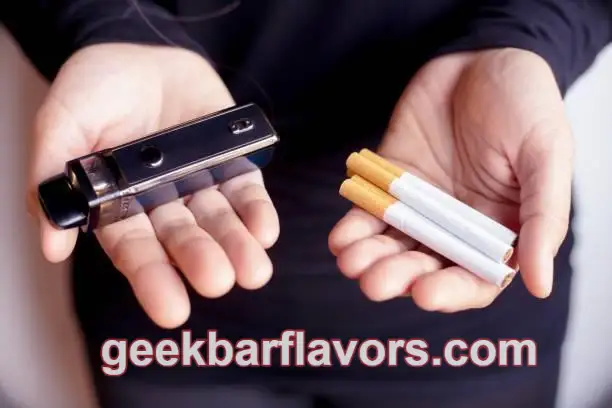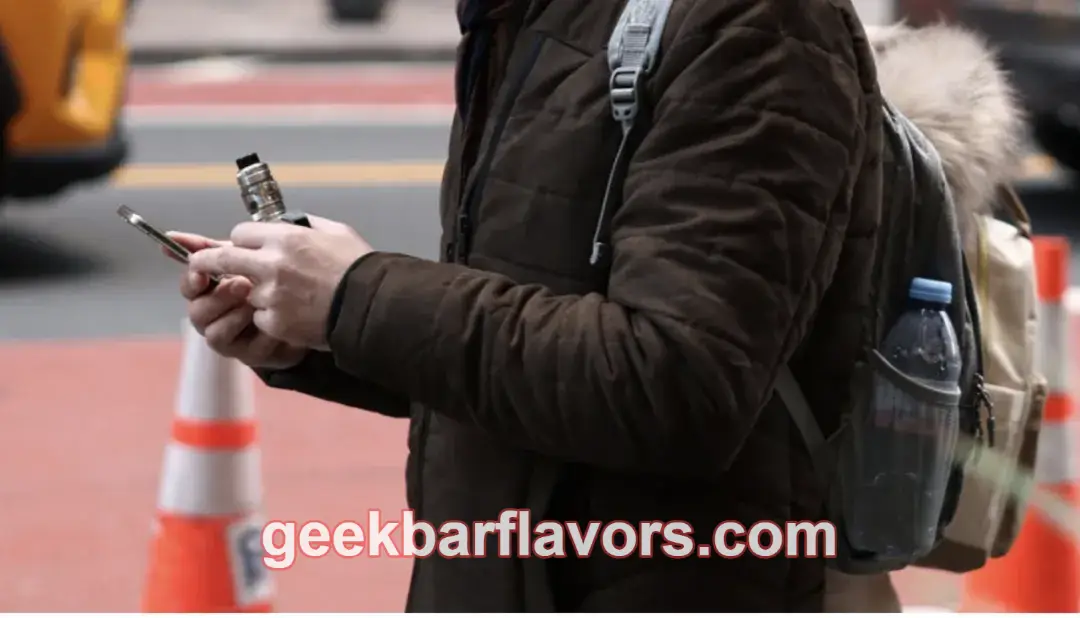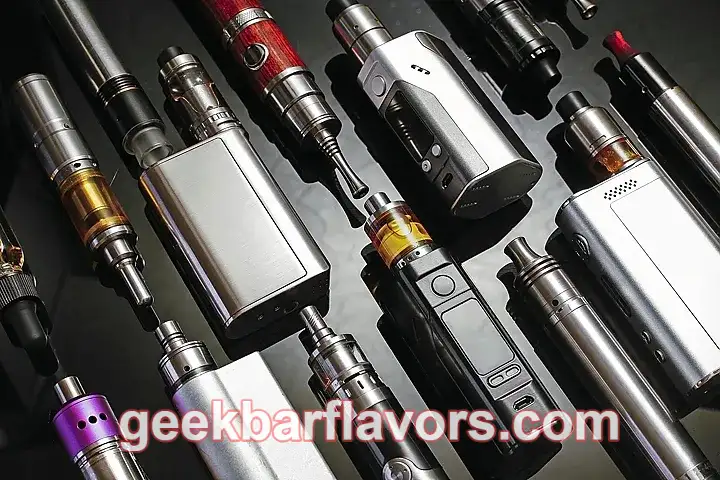Connecticut Attorney General Proposes Ban on Flavored Vape Products, Including Menthol
In a bold move aimed at combating youth vaping in Connecticut, the state’s Attorney General, William Tong, has officially thrown his support behind a proposal to ban the sale of flavored vape products. This includes popular flavors like mint, menthol, and even more exotic choices like tropical fruit or candy flavors. The proposal seeks to halt the availability of these flavored e-cigarettes and other nicotine-delivery products that have been a significant driver of youth addiction in recent years.
Tong's statement came as part of his testimony before Connecticut's General Assembly, where he urged lawmakers to take a more aggressive approach to curbing the rise of vaping among teens. According to Tong, banning flavored vape products, such as the widely favored Miami Mint Geek Bar flavor or the ever-popular Geek Bar Pulse flavors, could save lives, prevent addiction, and, most importantly, protect public health.
Why Focus on Flavored Vapes?
Flavors like Miami Mint Geek Bar flavor and Geek Bar Pulse flavors have been a massive hit among younger audiences. These flavors make vaping more appealing and, as some experts argue, contribute significantly to the ease of addiction. Menthol, in particular, is one of the most widely used flavors, which is why it’s such a focal point in the proposed ban. The cool, refreshing taste of menthol has been a longstanding hook for smokers, and when these same flavors are incorporated into vape products, they can easily lure in a younger demographic that might otherwise never have considered smoking in the first place.
“Flavors like Miami Mint Geek Bar flavor have a serious impact on the growing e-cigarette epidemic,” said Tong. “They’re designed specifically to attract young people who are drawn to candy-like, cool, or refreshing tastes. This type of marketing is predatory and must be stopped."
Tong further emphasized that a ban on flavored vaping products, including menthol, would have a major positive impact on public health. He noted that studies have shown how vaping has become a gateway to nicotine addiction among teens, leading to long-term health issues and, in some cases, life-threatening conditions.
The Fight Against Big Tobacco
Connecticut’s fight against the tobacco industry is nothing new. Tong's office has long been involved in holding Big Tobacco accountable for its role in marketing products to minors and encouraging addiction. From the massive multistate settlement reached in the 1990s to more recent actions against vaping companies like Juul, the state has consistently worked to protect its residents from the harms caused by nicotine products.
“We’ve been in this fight for years,” Tong noted. “Our work in negotiating historic settlements with the tobacco industry, and more recently holding e-cigarette companies accountable, shows our commitment to safeguarding public health and protecting the most vulnerable—our youth.”
The push to ban flavored vapes is part of a broader effort to reduce the number of young people becoming addicted to nicotine. Since vaping gained popularity, e-cigarettes have become a major issue, especially among high school students. According to national surveys, more than 30% of high school students have reported using e-cigarettes, with many citing flavors as the main reason for their choice.
What’s at Stake?
Flavored vape products are widely available and have a huge share of the market. Products like Geek Bar Pulse flavors come in an array of sweet and refreshing options that have made them one of the go-to choices for teens. This creates an environment where it's easy for young people to get hooked on nicotine, often before they even realize the potential long-term consequences.
This proposed ban could make a significant difference in turning the tide against teen vaping, which has become a serious public health concern. If successful, it would set an example for other states that have yet to address the issue. Connecticut would join states like New York, New Jersey, and Rhode Island, which have already taken steps to restrict or ban flavored vape products.
In fact, Massachusetts has already banned all flavored tobacco products, including flavored e-cigarettes, menthol cigarettes, and even flavored cigars. Connecticut lawmakers are hoping to follow this trend, though past efforts have been met with resistance. In 2022, a similar bill failed to make it through the legislative process despite widespread public support.
The Teen Vaping Crisis
The growing trend of teen vaping is not just a local issue for Connecticut but a nationwide problem. The Centers for Disease Control and Prevention (CDC) has reported alarming statistics on the rise of e-cigarette use among youth. With vaping seen as less harmful than traditional cigarettes, many teens are drawn in by the easy access and appealing flavors. However, the long-term effects of vaping, particularly in terms of lung health, are still being studied, but experts agree that it’s not a habit that can be taken lightly.
“I’ve seen firsthand how vaping has become a major issue among young people,” said Dr. Emily Summers, a public health expert. “The introduction of sweet, minty, and tropical flavors makes these products incredibly tempting for kids. Unfortunately, they don’t realize that the nicotine addiction they are developing could impact their health for years to come.”
Dr. Summers adds that the rise in youth vaping could ultimately lead to an increase in chronic diseases and even premature deaths due to long-term nicotine use. This is why efforts to regulate flavored vape products, especially those like Miami Mint Geek Bar flavor, are so important in reversing the trend.
Looking Ahead: What’s Next for Connecticut’s Vape Ban?
While Connecticut's proposed ban on flavored vape products has strong support from public health officials like Tong, there’s still a long road ahead for the bill. Lawmakers will need to consider the concerns of businesses that sell flavored vape products and e-cigarettes, as well as vaping enthusiasts who argue that these products offer a safer alternative to traditional smoking.
Still, Tong remains hopeful that the growing evidence of the dangers posed by flavored vaping products will be enough to push the bill across the finish line. He’s calling for swift action, stressing the importance of protecting Connecticut’s youth from the harms of nicotine addiction.
“We’ve already seen what happens when we don’t act quickly,” Tong said. “If we don’t take action now, we risk more young people getting hooked on nicotine. The time to act is now—banning flavored vapes, including menthol and other popular flavors like Geek Bar Pulse flavors, will make a real difference.”
In the meantime, young vapers looking for alternatives to flavored vape products like Miami Mint Geek Bar flavor might want to consider quitting altogether or seeking support from health professionals to manage their addiction.
Conclusion
The battle to stop youth vaping is intensifying, and Connecticut's push to ban flavored vapes, including popular options like menthol and tropical fruit flavors, is a step in the right direction. If passed, this could lead the way for other states to follow suit, ultimately protecting the health of young people nationwide. As we continue to witness the rise of flavored vapes in the market, it’s important to remember that prevention, education, and regulation are key in addressing this public health crisis. Stay tuned as Connecticut’s lawmakers move forward with this critical legislation.

